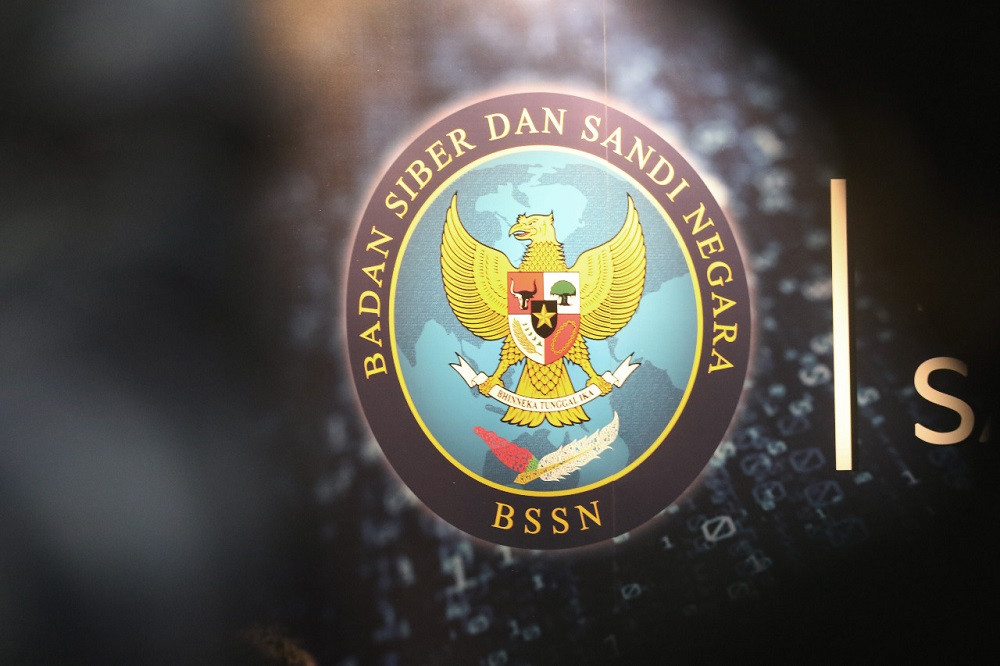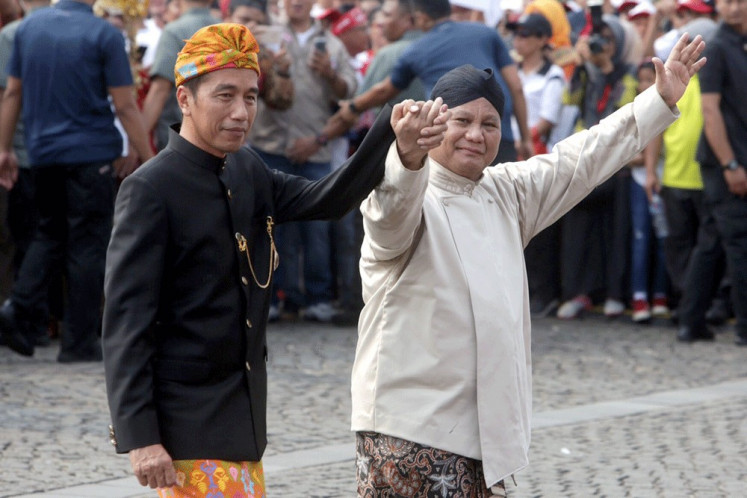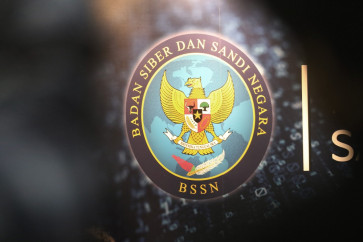Navigating the cyber future: Does Indonesia need a cyber military force?
Cyber incidents damaging critical infrastructure, especially in the financial and public sectors, underscore the need for a more comprehensive approach to cybersecurity.
Change text size
Gift Premium Articles
to Anyone
 Cyber security: The logo of the National Cyber and Encryption Agency (BSSN) is seen on the agency’s office in Jakarta on March 15, 2019. The agency has asked Facebook and Twitter to help act against accounts that spread hatred and false news. (JP/Dhoni Setiawan)
Cyber security: The logo of the National Cyber and Encryption Agency (BSSN) is seen on the agency’s office in Jakarta on March 15, 2019. The agency has asked Facebook and Twitter to help act against accounts that spread hatred and false news. (JP/Dhoni Setiawan)
T
he pivotal issue of cybersecurity is poised to dominate the upcoming third presidential debate scheduled for Sunday. This topic has gained the attention of all three presidential candidates, as mirrored in their manifestos, notably Ganjar Pranowo and Mahfud MD, who propose the establishment of an independent cyber military force.
The concept of a cyber military force surfaced in August 2023 when the then-governor of the National Resilience Institute, Andi Widjajanto (now part of Ganjar’s campaign team), referenced the Singapore Armed Forces' creation of the Digital and Intelligence Service in October 2022 in response to escalating cyber threats.
Presently, Indonesia houses a cyber defense unit (Satsiber) established in 2017 in addition to the Cyber Defense Center under the Defense Ministry, complemented by the National Cyber and Encryption Agency (BSSN) and the National Police cybercrime unit, both inaugurated a year later.
The global landscape indicates a trend toward establishing specialized cyber forces across militaries. Countries such as Singapore, China and Germany have already instituted independent cyber services. Even the United States, which boasts the highly regarded US Cyber Command, is currently deliberating the creation of a new cyber force in response to the ransomware attack in May 2021 that disrupted national gasoline distribution.
Max Smeets, a researcher at ETH Zurich who focuses on military cyber force, observed a surge in military cyber organizations globally between 2014 and 2018, aligning with the growing recognition of cyberspace as a new domain of warfare.
While the tangible impact of cyber operations in real conflicts remains debatable, experts contend that the rapid rise of artificial intelligence in military applications underscores the increasing importance of a robust cyber force.
The ever-evolving cybersecurity landscape adds another layer of urgency to establishing a specialized cyber force. Cybercrime has transcended mere financial motivations, evolving into a national security threat even for affluent nations like the US and the United Kingdom. Simultaneously, developing countries have witnessed an uptick in attacks. A notable example is the Costa Rican government declaring war on the Conti ransomware group in 2022, which paralyzed the country's systems while demanding a substantial ransom.


















